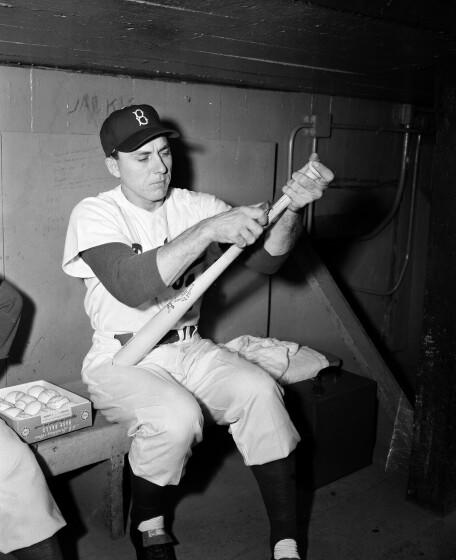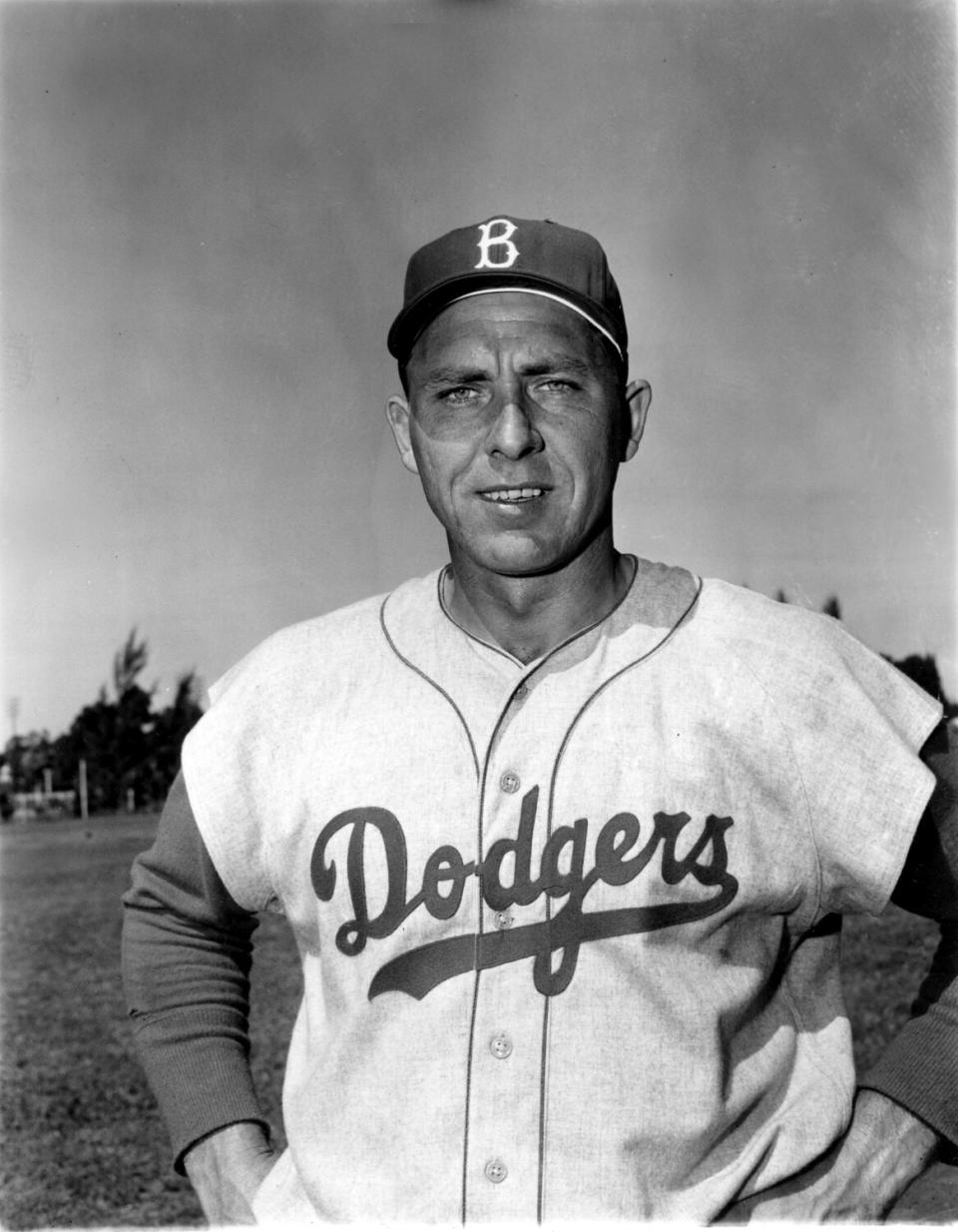Dodgers great Gil Hodges finally voted into Baseball Hall of Fame

Former Dodgers slugger Gil Hodges, who won championships as a player in Brooklyn (1955) and Los Angeles (1959) and managed the New York Mets to the 1969 World Series title, was one of four players elected to the National Baseball Hall of Fame on the Golden Days Era ballot on Sunday.
Hodges, who died in 1972, will be inducted posthumously in Cooperstown, N.Y., next July 24, along with pitcher Jim Kaat and outfielders Minnie Miñoso and Tony Oliva. Former Dodgers shortstop Maury Wills was on the ballot but did not make the cut. He received three or fewer votes.
Buck O’Neil, the former Negro Leagues star and major league coach and scout who helped found the Negro Leagues Baseball Museum in Kansas City, and Bud Fowler, often acknowledged as the first Black professional baseball player, were elected to the Hall on the Early Baseball Era ballot.
Hodges, an eight-time All-Star and three-time Gold Glove Award winner known for his solid production at the plate and stellar defense at first base, received 12 of a possible 16 votes, achieving the 75% threshold required for induction.
He will be the 61st individual associated with the Dodgers as either a player, manager, coach, scout, executive or broadcaster to be inducted into the Hall.
“When you mention all-time greats in Dodger history, Gil Hodges is among the finest to ever don Dodger blue,” team president and chief executive Stan Kasten said in a statement. “We are thrilled that he will finally take his place in Cooperstown alongside the game’s greats and look forward to honoring him next year.”
Hodges spent the first 15 years of a 17-year career with the Dodgers, playing in Brooklyn from 1947-57 and in Los Angeles from 1958-61 before ending his career with two seasonswith the expansion Mets.
The right-handed-hitting Hodges hit .273 with an .846 on-base-plus-slugging percentage in 2,071 games, accumulating 370 home runs, 295 doubles, 48 triples, 1,921 hits, 1,274 RBIs and 1,105 runs. He made seven straight All-Star game appearances from 1949-55, driving in 100 or more runs each season.

Hodges is one of only 18 players to hit four homers in a game, accomplishing the feat against the Boston Braves in Ebbets Field on Aug. 31, 1950. Hodges had nine RBIs in Brooklyn’s 19-3 win.
In addition to the 1955 World Series-winning club, Hodges played on National League pennant winners in 1947, 1949, 1952, 1953 and 1956. When the Dodgers beat the New York Yankees for their 1955 title, Hodges drove in the only two runs in the decisive Game 7.
Hodges died on April 2, 1972, two days shy of his 48th birthday and on the eve of what would have been his fifth season as manager of the Mets. His widow, Joan, is 96 and still lives in the same Brooklyn house they shared when Hodges played for the Dodgers.
He finished as high as third place during his 15 years of Hall-of-Fame eligibility, garnering 60.1% of the vote in 1981.
“He certainly deserves to be in the Hall of Fame,” Duke Snider, a 1980 Hall of Fame inductee and 15-year teammate of Hodges, said prior to his death in 2011. “Although Gil’s numbers are certainly worthy, I don’t just go by numbers. I go by what a guy did to help his team be a better ballclub.
“He was a catalyst on our club and such a superb player. He helped all of us become better. When you’re surrounded by [Pee Wee] Reese, [Jackie] Robinson, [Roy] Campanella and Hodges, it sort of rubs off on you.”
The Golden Days Era ballot featured candidates whose primary contributions to the game came from 1950-69. The other six players on the ballot were Wills, Dick Allen, Ken Boyer, Roger Maris, Danny Murtaugh and Billy Pierce. Allen received 11 of 16 votes, finishing one vote short of election.
Seven Negro Leagues and pre-Negro Leagues legends and three former big-league stars comprised the Early Baseball Era ballot, which featured candidates whose primary contribution to the game came before 1950. They were O’Neil, Fowler, Bill Dahlen, John Donaldson, Vic Harris, Grant “Home Run” Johnson, Lefty O’Doul, Dick “Cannonball” Redding, Allie Reynolds and George “Tubby” Scales, all deceased.
Among those on the selection committees for both eras were Hall of Famers Bert Blyleven, Rod Carew, Fergie Jenkins, Mike Schmidt, John Schuerholz, Bud Selig, Ozzie Smith and Joe Torre; MLB executives Al Avila, Bill DeWitt, Ken Kendrick, Kim Ng and Tony Reagins; and veteran media members/historians Adrian Burgos Jr., Steve Hirdt, Jaime Jarrin, Jack O’Connell, Rick Hummel and John Thorn.
This story originally appeared in Los Angeles Times.

 Yahoo Sports
Yahoo Sports 